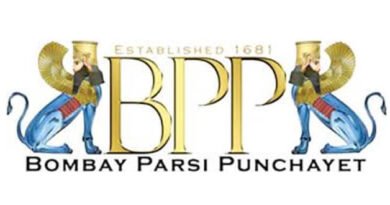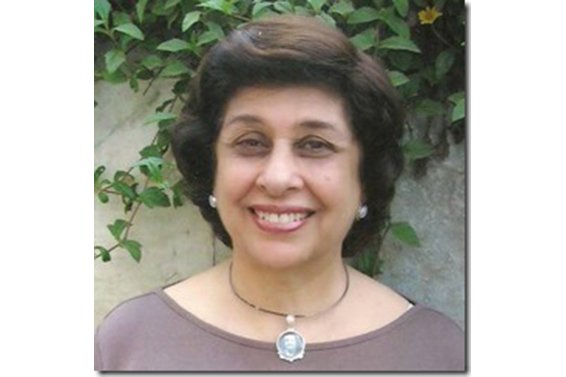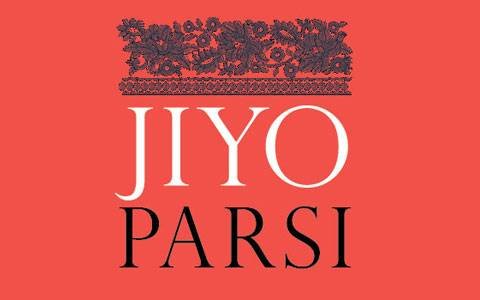FILA 2021 LIFETIME ACHIEVEMENT: CYRUS POONAWALLA, THE VACCINE KING

He is undoubtedly the global vaccine king.
At last count, over 65 percent children in the world, spread across some 170 countries, have at least once been given a vaccine made by Cyrus Poonawalla’s 55-year-old company, the Serum Institute of India (SII), currently the world’s largest vaccine maker by number of doses produced and sold globally. These include polio, diphtheria, tetanus, pertussis, Hib, BCG, r-hepatitis B, measles, mumps, and rubella vaccines, among others. Pune-based SII manufactures as many as 1.5 billion vaccines annually.
Yet, it was last year, as India and the world began battling the Covid-19 crisis that SII and Poonawalla truly came into their own, particularly in becoming a household name. That’s because, as soon as the Covid-19 crisis began globally, SII struck a partnership with the Oxford University’s Jenner Institute to partner in manufacturing
what was then an unproven vaccine against Covid-19. Even as the companies around the world had begun working on vaccines to combat the coronavirus, this was a big gamble, especially since the candidate they were betting on had not demonstrated any efficacy. SII then went on to strike at least three more partnerships with global biotechnology companies to help develop newer types of vaccines.
AstraZeneca and SII struck a deal that reportedly involved an upfront payment in return for manufacturing and selling in India. SII’s vaccines have also been sent to countries around the world as part of India’s vaccine diplomacy programme in addition to countries that have commercial deals with India, including Canada and Brazil. In all, the Indian government has committed to buying nearly 60 million doses of the vaccine from SII.
“One of Serum Institute’s key strategies even today is to work within a model whereby vaccines are produced in high volumes at low prices, giving us a significant edge over competitors while driving sustainable revenue streams for the long run,” Cyrus Poonawalla, the 80-year-old chairman and managing director of SII, and chairman of the Poonawalla Group, tells Forbes India. “We seek to build Serum Institute efficiently with negligible debt, with a highly committed and engaged global workforce.”
On February 16, the World Health Organization (WHO) gave emergency use approval to AstraZeneca’s vaccine, allowing SII to sell vaccines to some of the world’s poorest countries. Today, the company has four partnerships to develop a Covid-19 vaccine, the biggest being the deal with AstraZeneca. Others include Novavax, Codagenix and SpyBiotech, with whom SII is jointly developing or manufacturing vaccines. Novavax’s vaccine, NVX-CoV2373, had recently claimed an 89.2 percent efficacy after phase 3 trials in the UK.
“As one of the leading manufacturers, it was our responsibility to drive the wheels of action and save the world,” Poonawalla says. “The effectiveness of Covishield is one of the greatest modern-technology miracles. Earlier, it would have been impossible to dream of making a viable vaccine in such a short duration. That said, we have a long way to go still, and the Serum Institute of India will continue to stand tall in support alongside the people of the world.”
Today, one dose of Covishield [it’s a two-dose vaccine] is sold at ₹210 by SII to the government, a fraction of what the vaccines manufactured by global pharmaceutical companies Moderna and Pfizer cost. Much of that, Poonawalla reckons, is due to the group’s founding belief on providing affordable vaccines to millions of Indians at a time when India was heavily dependent on imports for much of its vaccine and medical supplies. “From the very inception of the company, we encompassed a philanthropic approach to the pricing of these world-changing, life-saving vaccines,” Poonawalla says.
“He can rightly be called the father of vaccines,” Mahima Datla, managing director of Hyderabad-based vaccine maker Biological E, says. “Well before biotech became a buzzword, he had the ability to take risks in the sector and people often tend to forget that he spent an entire lifetime trying to transform access to immunisation for millions of people around the world. He is certainly unapologetic about his opinions and has been key to building India’s vaccine capabilities.”
From Horse Breeding and Cars to Vaccines
Poonawalla was born into a family that owned stud farms in Pune. His father Soli Poonawalla was a well-known horse breeder and owned the Poonawalla Stud Farms. To date, the Poonawalla Stud Farms has bred 369 Classic winners, including winners of 10 Indian Derbies and 70 Indian Classics. It is the highest stakes-earning establishment in the country with over 755 home-breds earning stakes in excess of ₹1 million.
“I was born into a family that had old ties to India’s horse racing circuit,” Poonawalla says. “Growing up, I had a strong affinity towards creating and building something for the masses.” That’s precisely why, at 20, Poonawalla and his friends got together to experiment with building a car, and even built a prototype sports car modelled on the D-type Jaguar. Back then, India was a fledgling economy, which had only been independent for a little over a decade, with not much to show in industrial prowess. And Poonawalla’s prototype would cost around ₹9,000, a heavenly sum for that period. India’s per capita income back then was around $81, which stands at a little over $2,100 (approximately ₹1.5 lakh) now.
“Producing the prototype on a commercial basis required more money than we had, so we abandoned the idea, realising that making a product for the masses, rather than India’s elite, would be a smart move,” says Poonawalla, who graduated from the Brihan Maharashtra College of Commerce in 1963.
With India’s economy following a government-controlled socialist regime, Poonawalla also realised that his family-owned business of horse racing really didn’t have a future. “For a socialist country like India, at that time horse-racing had limited expansion scope,” he says.
It was then that a chance conversation with a veterinary doctor led Poonawalla down the path of vaccines. At the time, retired horses from the Poonawalla Stud Farms were donated to the government-owned Haffkine Institute in Mumbai, which made vaccines from horse serum.
“During the 1960s and 1970s, India was facing an acute shortage of life-saving sera and vaccines which were then being imported at very high prices,” Poonawalla says. “Sera and vaccines were, to a very limited extent, manufactured by government-run companies.” Soon, Poonawalla realised that the serum could be used in manufacturing tetanus, anti-toxin, and anti-snake venom serum.
“Thus, on the outskirts of our stud farm, in June 1966, with a meagre initial capital equivalent of $12,000 (₹900,000), raised by selling some of our horses and a loan from my father, I established a small-scale serum manufacturing plant recognised as Serum Institute of India,” Poonawalla says.
The initial years, however, weren’t quite easy. The company started as a small-scale laboratory on 12 acres with a team of 20 people. “In the initial phase, we faced numerous challenges, including excessive red tape and bureaucracy in procuring necessary sanctions for construction, water and electricity, as well as permissions for drug licences from local, state and federal authorities,” Poonawalla says. “The lack of private sector participation was due to the fact that vaccine manufacturing is a highly complex and sensitive process. It requires huge investment, highly trained professionals, and continuous compliance with ever-changing regulations.”

SII manufactures nearly 70 million doses of Covishield a month, which is expected to increase to 100 million by March once its third facility is operational
Image: Courtesy Serum Institute of India
Within two years, the company began manufacturing anti-tetanus vaccines before moving on to diphtheria, tetanus, and pertussis (DTaP) vaccines in 1974, followed by an anti-snake-venom serum in 1981. Back then, India was still heavily dependent on Unicef and imports for vaccines and medicines. “It was our clear strategic endeavour to invest linearly and make the country self-sufficient with life-saving sera and vaccines at affordable prices,” Poonawalla says. “SII allowed me to support a critical social cause in India and meet the demand for vaccines in the country by extracting the serum from horses and producing cheaper vaccines.”
By 1989, the company also began manufacturing the measles vaccine, until then unavailable in India, and in 1990, SII became the largest manufacturer of vaccines in India. “We were significantly ahead of government-run companies,” Poonawalla says. The company had used a relatively lesser-known measles strain acquired from Yugoslavia with a basic template technology, which was worked upon to make what Poonawalla calls a very high quality, efficacious, and cost-effective measles vaccine.
The Turning Point
The 1990s was a defining period for Poonawalla and SII.
“Post 1990, we aimed to go beyond India, where we visualised huge potential to immunise children all over the world,” Poonawalla says. “We focussed on the UN agencies that were procuring high volumes of vaccines.” The company received WHO accreditation for its products in 1993, starting with the measles vaccine, allowing it access to the huge global market.
“Within the next decade, Serum Institute emerged as the largest supplier of vaccines to combat diphtheria, tetanus, whooping cough and the measles, mumps, and rubella group of vaccines, overtaking ‘big pharma’ in production,” Poonawalla says. So far, Serum Institute has received WHO approval for 22 products, the largest for any manufacturer in the world to date.
By 2001, Cyrus’s son Adar Poonawalla also joined the business. In 2012, SII bought Dutch vaccine maker Bilthoven Biologicals, giving it access to the technology for making injectable polio vaccines, which was then available with just three producers globally. That was followed by the acquisition of the Czech arm of US-based firm Nanotherapeutics for nearly ₹500 crore to help increase the production capacity of polio vaccines to more than 200 million doses by 2020, making SII the world’s largest maker of injectable polio vaccines.
“However, our greatest achievement lies in the fact that we saved the lives of millions of children across 170 countries,” Poonawalla says. “Today, more than two-third of the world’s children have received one or more vaccines manufactured by the Serum Institute of India.”
Along the way, Poonawalla also expanded his business into newer areas, including finance, hospitality, real estate and aviation. Poonawalla Aviation is a Pune-based non-scheduled operator providing chartered flight services since 2005 with a fleet of three aircraft. In early February this year, Poonawalla Finance, a company owned by the Poonawalla Group, announced that the company is buying publicly listed Magma Fincorp for ₹3,456 crore. Until now, Poonawalla Finance had largely remained on the fringes, with a loan book of some ₹1,500 crore.
“I see unlimited potential in India in the financial space as our economy is poised to grow in double digits and this ties in with our group philosophy of serving the needs and dreams of the nation, and financial service plays an important role in supporting and fuelling the growth of our country,” Adar, who is CEO of SII, had said at the time of the purchase. The group has also forayed into renewable energy solutions and the hospitality sector.

“Adar has an undeterred commitment and a strong resolute to transform the health care industry,” Poonawalla says. “His approach to business—with compassion and thoughtfulness—is aligned with the philosophy of the Serum Institute of India. As they say, the apple doesn’t fall far from the tree, I am certain that he will continue to lead and be an inspiration to a generation of young leaders.”
Adar joined the family business in 2001 and was instrumental in expanding it to some 50 countries. Last September, Adar had told Forbes India that he was taking a personal risk by investing in the AstraZeneca vaccine, pumping in $800 million to help find, and then produce the vaccine. Today, the company manufactures nearly 70 million doses a month, which is expected to increase to 100 million by March once its third facility is operational.
“Serum Institute has revolutionised vaccine access in India and globally,” says Vishal Manchanda, research analyst for pharma at Nirmal Bang Institutional Equities Research. “It also took a bold decision to invest in a very large capacity without bothering about the clinical evidence around the AstraZeneca vaccine, which is phenomenal.”
Much of that perhaps was a result of Poonawalla’s strong desire to help the vast majority of the country, especially the poor. “My father always said, and his philosophy has always been that we must do something that’s in the area of necessity,” Adar had told Forbes India earlier. “He always said that we must do something at an affordable cost for the masses, and not for the sake of doing or because it will look good. That’s why you must never go after a niche area.”
Now, over the next few months, SII is also gearing up to launch another vaccine in partnership with Novovax. Last year, Novavax had announced its tie up with SII to produce two billion doses of Covid-19 vaccine. That apart, the company had also launched India’s first indigenous vaccine against pneumococcal pneumonia, in December 2020, which it has priced at a fraction of the existing vaccines in the market.
Currently, the pneumococcal conjugate vaccine is imported and sold in India by pharmaceutical giants Pfizer and GSK, who have priced it at ₹3,801 and ₹2,195 per dose respectively, making it the costliest vaccine in the child immunisation schedule. SII, meanwhile, has priced the vaccine at ₹225 per dose for public market, and a little over ₹750 per dose for the private market. “Our two pillars of not compromising with quality and ensuring health for all will remain the focal point of all our endeavours in which we try to help most people globally,” Poonawalla says.
At 80, Poonawalla can most certainly put his feet up, and watch the work of his lifetime find its much-needed recognition. But he knows well that the work is still not over.





